Paramedic, ambulance problems can't be fixed by city alone, mayoral candidates say
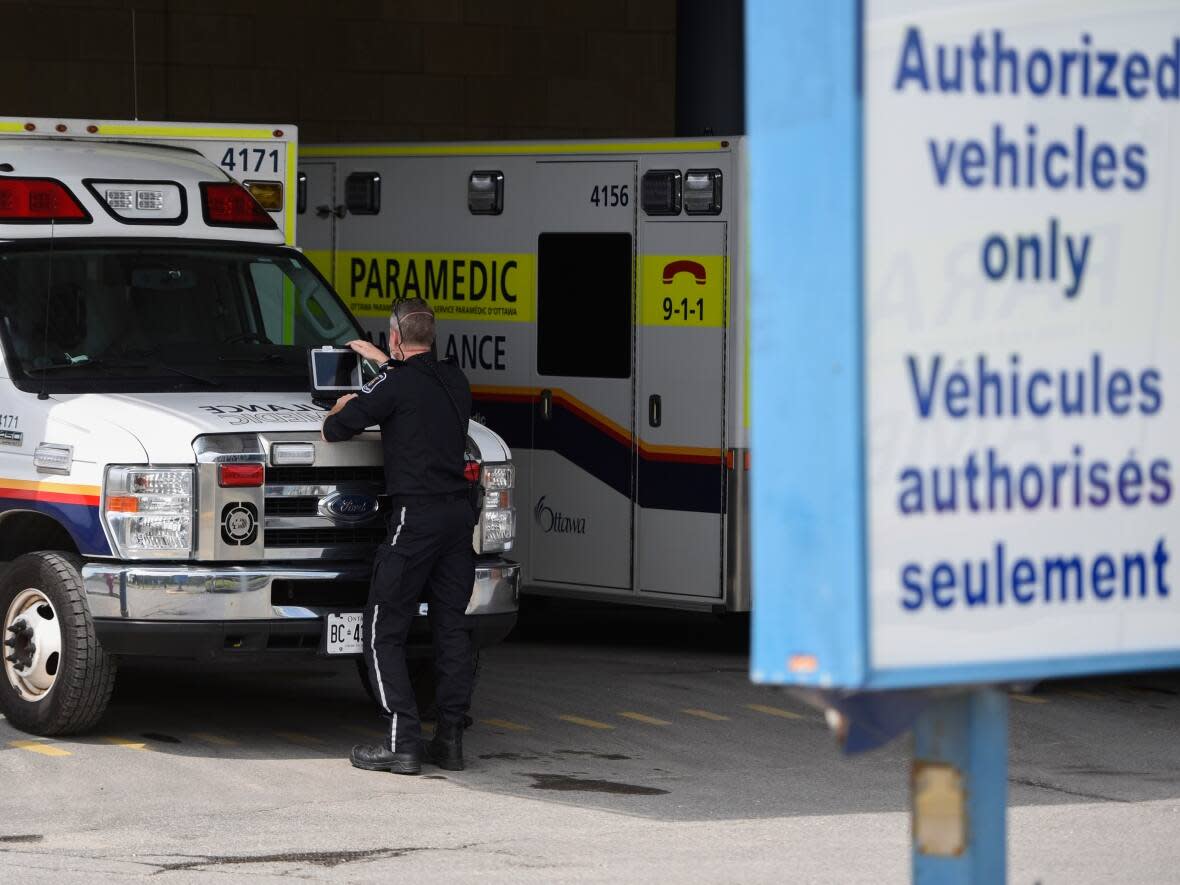
After an "unprecedented" summer where Ottawa's paramedic service had incidents when no ambulances were available to dispatch — known as a level zero — mayoral candidates are promising to get the province to step in.
During the pandemic, some of the dramatic implications of a level zero became more clear — an ambulance had to travel from Gananoque to respond to a call in Ottawa and a woman waited six hours for an ambulance after fracturing her hip.
Ottawa has struggled with level zero events for more than five years, but by June the city had already had more level zero incidents than the 750 it had the entirety of 2021.
Pierre Poirier, the paramedic chief, called this summer unprecedented in the frequency and length of time level zero incidents occurred and lasted.
He said this was the result of a combination of hospital offload delays, higher than normal calls for service and time off related to the pandemic.
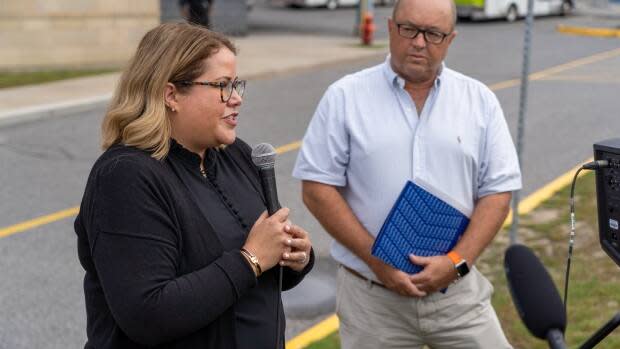
As of October, Poirer said there have been more than 1,300 level zero incidents, though he added the duration of the individual events has been getting shorter.
Carrie Lynn Poole-Cotnam, treasurer for CUPE 503, the union representing paramedics, said the current situation is contributing to burnout among paramedics.
"Some are choosing to leave the profession," Poole-Cotnam said.
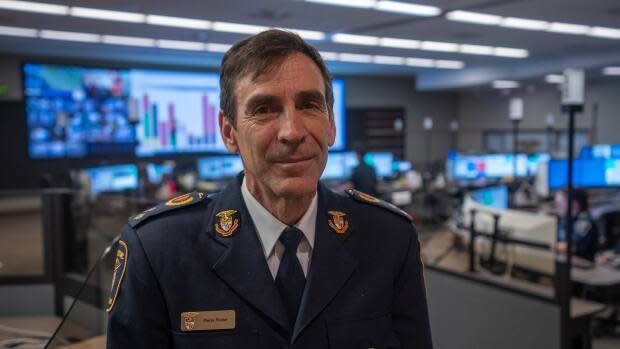
Candidates call on province to help
The union supports Mayor Jim Watson's August letter asking for $5 million to fund 42 paramedics who would be stationed in hospitals to help offload patients and return them to service.
Mayoral candidates Mark Sutcliffe and Catherine McKenney both support the request to the province and said they're committed to addressing the recurrent level zero issue.
Both candidates say the issue will require working with the province to address offload delays on top of hiring enough paramedics. Paramedic positions are funded through a 50-50 split between the province and municipality.
"It's clear that this is a permanent problem that needs a comprehensive solution. It's not happening once in a while, it's happening multiple times a day," Sutcliffe said. "That requires a dialogue with the provincial government."
The city has been hiring 14 additional paramedics a year, and both candidates say they'd support hiring more but don't have a number in their platforms.
"The city is growing, we know that, and we need to keep up with that growth," McKenney said.
"A key part of that is keeping up with the increasing number of paramedics we need to meet that growth."
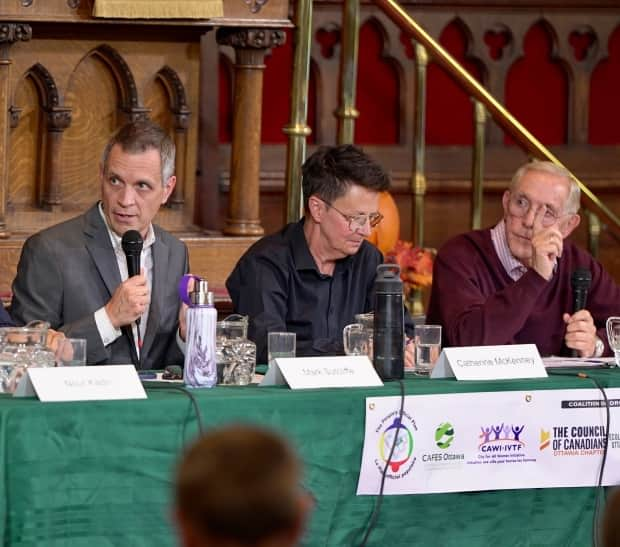
In a statement, Bob Chiarelli said the city has not kept up hiring to meet the growth of the population, but that no amount of hiring will resolve the issues in hospitals. He said the right people need to come together to address the issue.
The union said based on call volumes, the aging population as well as the sprawling and widespread nature of the city's neighbourhoods, an additional 30 front-line paramedics will be needed every year for the next four years.
"We are falling behind," Poole-Cotnam said.
Hospital beds not quick solution
Darryl Wilton, president of the Professional Paramedic Association of Ottawa, said municipalities have been looking to the province to provide a fix for a long time — given the delays in getting patients into hospital beds.
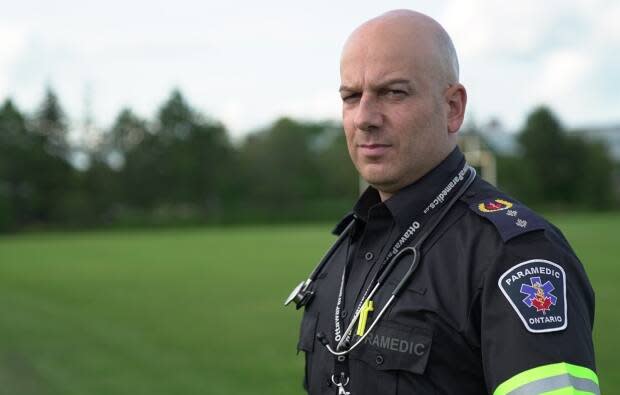
"They're right by doing that, however, in the interim, when somebody calls 911 … they have minutes, seconds. They don't have decades to wait for hospital beds or long-term care beds to be built," Wilton said.
He said municipal politicians are also weighing whether they're providing funding to address an issue in the province's jurisdiction.
"Are [they] willing to fund a problem that [they] have no control over? That's a tough position to be in. We know it's not going away," Wilton said.
However, Wilton said stationing a small number of paramedics in hospital to monitor offloaded patients — even if the province only covers half the bill as it does for regular paramedic services — would make a huge difference in freeing up local crews to attend the next patient.
Poirier, the paramedic chief, said the service has been piloting that program and it has already started to make a difference. He said the province has acknowledged the mayor's August 2022 letter for the 42 additional positions.
Ontario's Ministry of Health said it's increasing funding for offload nurses who monitor less severely ill patients when they come off ambulances, as well as expanding options for paramedics to care for people in the community or take them to alternative destinations than hospitals.


